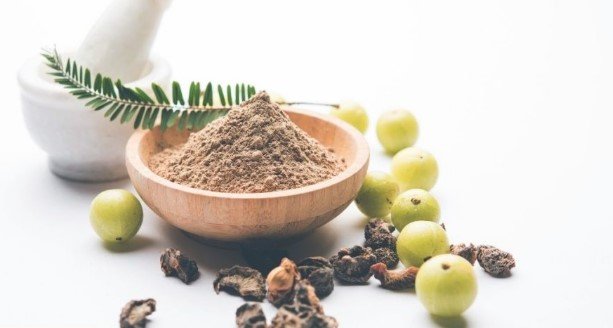Ayurveda, an ancient Indian system of medicine, emphasizes balance in all aspects of life to achieve and maintain good health. Wellhealth Ayurvedic health tips incorporate traditional knowledge to support overall well-being, focusing on diet, lifestyle, and natural remedies.
What is Ayurveda?
Ayurveda, translating to “science of life,” is a holistic approach to health that has been practiced in India for thousands of years. It is based on the belief that health and wellness depend on a delicate balance between the mind, body, and spirit. The primary aim of Ayurveda is to promote good health, rather than fight disease. However, treatments may be geared toward specific health problems.
Ayurvedic Doshas – In Wellhealth Ayurvedic Health Tips
Central to Ayurvedic medicine is the concept of doshas, which are the three energies that govern physiological activity. The three doshas are Vata (space and air), Pitta (fire and water), and Kapha (water and earth). Each individual has a unique combination of doshas that define their constitution and influence their health. Maintaining a balance of these doshas according to the experts is key to Ayurvedic health.
Immune-Boosting Herbs – Best Wellhealth Ayurvedic Health Tips
Ayurveda emphasizes the use of herbs and natural substances to support the immune system and overall health. Some well-known immune-boosting herbs include:
- Tulsi (Holy Basil): Known for its stress-reducing properties, Tulsi also enhances the body’s natural immune response.
- Ashwagandha: This herb is renowned for its adaptogenic properties, helping the body resist stressors and thereby bolstering immunity.
- Turmeric: With its active compound curcumin, turmeric offers potent anti-inflammatory and antioxidant benefits.
- Ginger: Ginger stimulates digestion, circulation, and sweating, all of which support immune function.
Natural Wellhealth Ayurvedic Health Tips
To incorporate Ayurveda into daily life for improved health, consider the following tips:
- Diet According to Dosha: Tailor your diet to balance your dominant dosha. For example, Vata types benefit from warm, moist, and grounding foods, while Pitta types should favor cool, sweet, and bitter foods to balance their internal heat.
- Regular Detox: Ayurveda recommends periodic detoxification to remove toxins from the body. This can be as simple as following a mono diet of khichari (a dish made of rice and mung beans) for a few days.
- Yoga and Meditation: These practices are integral to Ayurveda, promoting balance and harmony within the mind and body.
- Rituals and Routines: Establishing a daily routine that includes waking up early, practicing yoga, and eating meals at regular times can significantly improve health and well-being.
- Natural Remedies: Use Ayurvedic herbs and spices in your diet for their health-promoting properties. Incorporating a variety of these into your daily routine can support digestion, immunity, and overall vitality.
FAQs on Wellhealth Ayurvedic Health Tips
1. What is Ayurveda and how does it benefit health?
Ayurveda is an ancient Indian holistic healing system based on achieving and maintaining the balance of mind, body, and spirit. Its benefits include improved digestion, stress reduction, enhanced immunity, and overall vitality.
2. Can Ayurveda help in treating chronic diseases?
Yes, Ayurveda can be beneficial in managing chronic diseases by focusing on the root cause of the illness and employing natural remedies, dietary adjustments, and lifestyle changes to restore balance and health.
3. What are Ayurvedic doshas?
Doshas are the three energies that define an individual’s physiological and personality traits, namely Vata (air and space), Pitta (fire and water), and Kapha (water and earth). Understanding your dominant dosha can guide dietary and lifestyle choices for better health.
4. How can one identify their Ayurvedic dosha?
One can identify their Ayurvedic dosha through a detailed assessment by an Ayurvedic practitioner, which includes questions about physical characteristics, mental tendencies, and lifestyle preferences. Some online quizzes provide a basic idea but are not as comprehensive.
5. What are some immune-boosting herbs recommended by Ayurveda?
Ayurveda recommends several immune-boosting herbs, including Tulsi (Holy Basil), Ashwagandha, Turmeric, and Ginger. These herbs support the immune system through their anti-inflammatory, antioxidant, and adaptogenic properties.
6. How does diet affect one’s dosha balance?
Diet plays a crucial role in maintaining or restoring dosha balance. Each dosha is pacified or aggravated by specific tastes and food qualities. For instance, Vata is balanced by warm, moist foods, while Pitta benefits from cool, sweet foods, and Kapha needs light, dry foods.
7. Are there any side effects to following Ayurvedic health tips?
When followed correctly under the guidance of a qualified Ayurvedic practitioner, Ayurvedic health tips and remedies are generally safe. However, self-medication or improper use of herbs may lead to adverse effects.
8. Can Ayurveda and modern medicine be integrated?
Yes, Ayurveda can complement modern medicine by offering preventive health measures and natural remedies that can support conventional treatments, particularly for chronic conditions where lifestyle and diet play significant roles.
9. How important is detoxification in Ayurveda?
Detoxification is a key component of Ayurveda, believed to remove toxins from the body, restore digestive fire, and promote overall health. It is recommended to undergo guided detoxification practices periodically.
10. Can lifestyle changes alone improve one’s health according to Ayurveda?
Ayurveda emphasizes the importance of a holistic approach to health, which includes diet, lifestyle, and mental well-being. While lifestyle changes alone can significantly impact health, they are most effective when combined with appropriate dietary practices and natural remedies tailored to an individual’s dosha.







